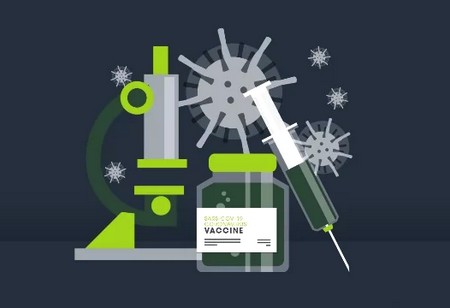
Zydus Cadila Expects Success for COVID Vaccine ZyCov-D, Plans to Boost Production Capacity


CEOInsights Team, 0
Cadila’s ZyCov-D is currently undergoing second phase of clinical trials in India among 1,048 volunteers and trial data is likely to be available next month. “So far it has been progressing smooth and solid and it is not fair to comment on the results until we complete the trials,” stated Pankaj Patel, Chairman, Zydus Cadila. Zydus is planning to start the final phase trial by December among 30,000 volunteers, which will be the largest COVID-19 trial in India.
The phase I dosing of ZyCoV-D was to establish safety and the phase II clinical trials are to evaluate the safety and immunogenicity of the vaccine in a larger population. Unlike the dead and live virus vaccines being tried by many vaccine makers, ZyCov-D is a plasmid DNA vaccine. In this, plasmid DNA, a small circular piece of DNA found in the cells, would be introduced into the host cells, where it would be translated into the viral protein and elicit a strong immune response in the human immune system.
Cadila is also looking to hire contract manufacturers for an additional 50 million to 70 million doses of its plasmid DNA vaccine, on top of the 100 million that will come from its own capacity, according to Managing Director Sharvil Patel. He declined to name the companies and the amount Cadila has invested in developing
Zydus is also working on a second vaccine for COVID-19 and its pre-clinical data will be ready by January 2021
the vaccine.
In the second vaccine under development, Zydus is attempting a live attenuated recombinant measles virus vectored vaccine against COVID-19. The recombinant measles virus (rMV) produced by reverse genetics would express proteins of the novel coronavirus and will induce long-term specific neutralizing antibodies, which will provide protection from the infection.
Cadila has created an in-house manufacturing capacity of 100 million doses per year and has roped in a contract manufacturer to make additional capacities to make about 150 million doses a year. Regulatory agencies worldwide, including the Indian regulator the Drug Controller General of India (DCGI), are expected to clear COVID-19 vaccines with an ‘emergency use authorization’ to start immunization, once the vaccines successfully undergo trials. An indigenously developed vaccine ‘Covaxin’ by Hyderabad’s Bharat Biotech and ICMR’s National Institute of Virology in Pune and a vaccine out licensed by Pune-based Serum Institute of India from AstraZeneca and University of Oxford, are also currently undergoing the final phase of clinical trials in India.
“The advantage of ZyCov-D is we had worked on this platform for developing vaccines related to Sars and Mers Cov-2 and it is easy to adapt, even if the virus is going to mutate. Another advantage is it does not require very high biosafety level, can quickly scale up manufacturing and the liquid vaccine will be hassle free in last mile immunisation,” stated Sharvil. The vaccines were developed at the Zydus vaccine research centre in Ahmedabad and at its acquired facility Etna Biotech in Italy.
Cadila, which also produces coronavirus treatments such as remdesivir, is among a number of Indian companies holding vaccine trials. While Cadila’s plasmid DNA candidate doesn’t use an infectious agent, like other vaccines, and instead introduces the DNA sequence encoding the antigen, the other tests being done are for traditional delivery methods.